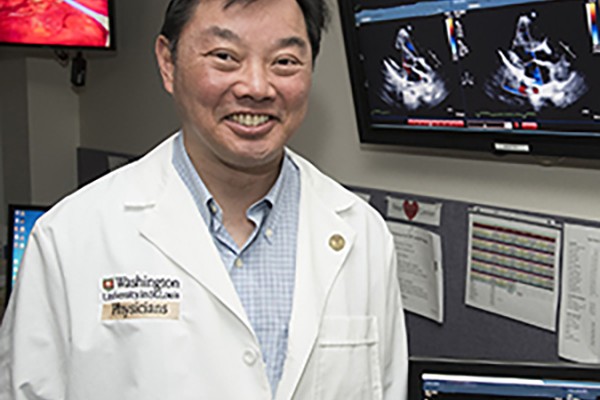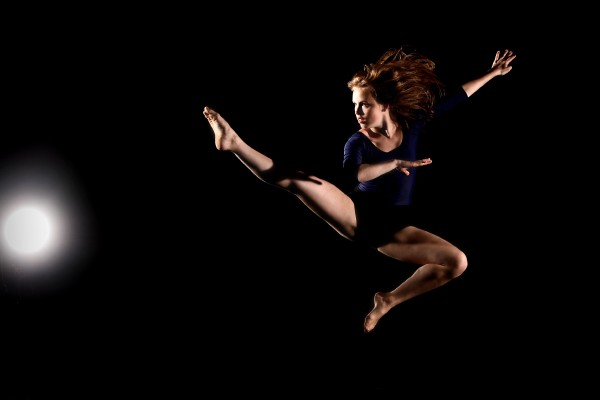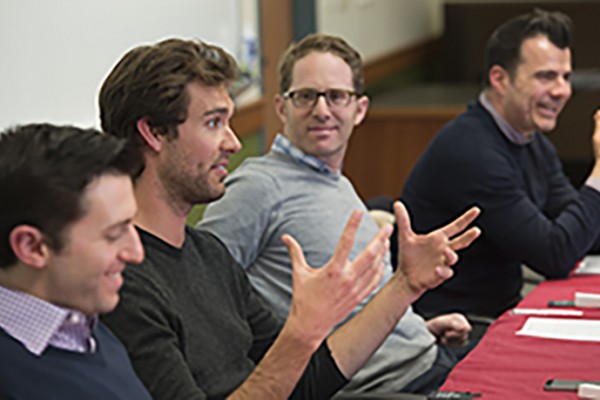Exercise for older mouse mothers lowers risk of heart defects in babies
Older mice genetically prone to bear offspring with heart defects can reduce this risk to that of younger mouse mothers with the same genetic defect through exercise alone, according to new research at the School of Medicine. The study, led by Patrick Y. Jay, MD, PhD, also suggests that the increased risk of congenital heart defects is tied to the age of the mother and not the age of her eggs.
Thinking on her feet
Dancer Samantha Gaitsch is a familiar face to campus audiences. Over the next two weekends, Gaitsch will perform with The Slaughter Project, company-in-residence in the Performing Arts Department in Arts & Sciences, and will co-direct “Step, Turn, Leap!,” the 2015 Student Dance Showcase.
Confronting the public health implications of gun violence
“Gun Violence: A Public Health Crisis,” a yearlong initiative at Washington University in St. Louis, will invite scholars, medical professionals, community leaders and citizens to take a hard look at the serious, tragic public health consequences of gun violence in America. Beginning this month, the university will host a series of events and discussions designed to explore three key themes: What we know, what we need to know, and what to do about this critical issue.
Music industry panel provides road map to top of the charts
Music industry insiders, including Sean Douglas, songwriter and 2005 alum, shared advice with Washington University students during a March 27 panel discussion “Making It in the Music Industry” at the Danforth University Center.
25th annual Pow Wow April 4
While the location of the annual Pow Wow is changing this year, the tradition and excitement are not. The
25th annual Pow Wow, a festival of American Indian cultures at
Washington University in St. Louis, will be held Saturday, April 4, at
the Dunham Student Activity Center on the campus of nearby Fontbonne University.
High-tech method allows rapid imaging of functions in living brain
Using a new high-speed, high-resolution imaging method, Lihong Wang, PhD, and his team at Washington University in St. Louis were able to see blood flow, blood oxygenation, oxygen metabolism and other functions inside a living mouse brain at faster rates than ever before.
Academy of Science-St. Louis honors Washington University researchers
Six researchers at Washington University are being honored as outstanding scientists by the Academy of Science-St. Louis. University recipients are faculty members Ralph Quatrano, Jennifer K. Lodge, Samuel Achilefu, Charles M. Hohenberg, Gautam Dantas and Steven Teitelbaum (right), who received a lifetime achievement award.
Faculty and staff invited to give to Our Washington campaign
Since the quiet phase of the campaign began in 2009, some 39 percent of Washington University’s faculty and staff – nearly 5,000 employees so far – have contributed $33.4 million to the campaign. That money helps to fund scholarships, supports academic and scientific initiatives, advances learning and enhances facilities.
Big data allows computer engineers to find genetic clues in humans
Big data: It’s a term we read and hear about often, but can be hard to grasp. Computer scientists at Washington University in St. Louis’ School of Engineering & Applied Science tackled some big data about an important protein and discovered its connection in human history as well as clues about its role in complex neurological diseases.
Washington University develops genetic test for inherited kidney diseases
Many kidney disorders are difficult to diagnose. To address this problem, scientists and clinicians have developed a diagnostic test that identifies genetic changes linked to inherited kidney disorders. This testing is now available nationwide through Genomic Pathology Services (GPS) at the School of Medicine.
View More Stories




